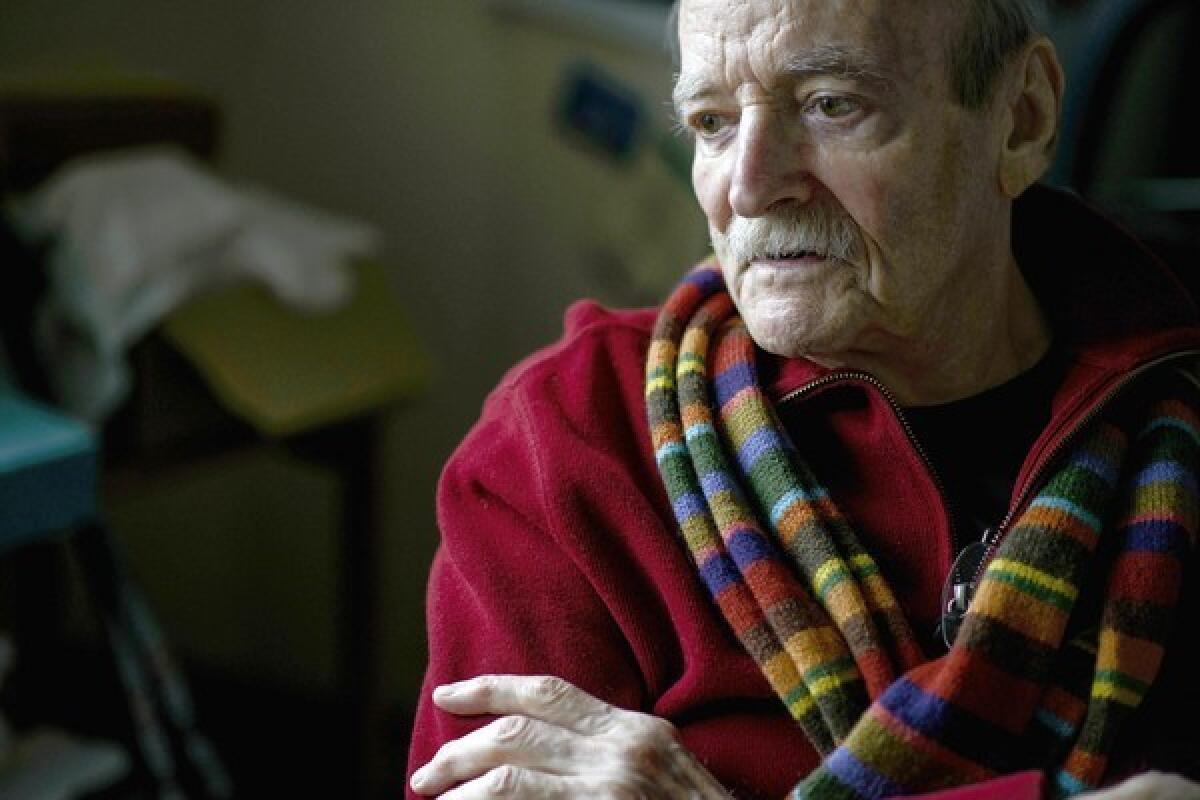A look at poverty in America, from the inside

- Share via
One little-recognized reality of poverty in America is how closely it lurks beneath the surface of even a successful professional life. A bad career turn, a couple of financial missteps, and -- here comes the dizzying plunge from middle class to underclass.
That’s the lesson of a remarkable first-person account in the latest issue of the Hedgehog Review, published by the Institute for Advanced Studies in Culture of the University of Virginia. Entitled “Falling,” its author is William McPherson, 81, a published novelist, former editor of the Washington Post Book World and a winner of the Pulitzer Prize for criticism, in 1977. (H/t James Wolcott.)
In unbashful detail, McPherson charts his descent from the comfortable middle class to life on Social Security, a meager pension and government antipoverty subsidies. He’s not seeking the reader’s sympathy, and he’s not denying personal responsibility. “I got where I am today through my own efforts,” he writes. “I can’t blame anyone else.”
It all started in 1987, when he gave up a 25-year career at the Post (interrupted by some leaves of absence and a stint as a book editor), to take up an offer of early retirement at 53. “I was under the illusion — perhaps delusion is the more accurate word — that I could make a living as a writer and the Post offered to keep me on their medical insurance program, which at the time was very good and very cheap,” he recounts. But by the time his company pension kicked in 12 years later, inflation had reduced its value by nearly a third.
He had made some money in the stock market and was left a couple of small inheritances -- enough in assets to fund his ambition to write about Eastern Europe after the fall of communism. So he thought.
“It was truly a great adventure, it changed my life, and it was a lot more interesting than thinking about what it cost, which was a lot. There’d always been enough money. I assumed there always would be. (I think this is called denial.) So another dip into the well. In my checkbook, I listed these deposits as draws. That sounded very businesslike, almost as if I knew what I was doing.” Eventually the well was empty. “The old proverb drifts back to me on a wisp of memory. A fool and his money are soon parted. My adventures were over.” Factor in a major heart attack that led to a chronic cardiac condition, and the fall is complete.
McPherson is remarkably candid about his life, which gives his account its objective detachment. Readers will impose on it their own perspectives on poverty and McPherson’s slide toward penury. Smug moralists will blame him and his foolish (to them) professional ambitions. Advocates for the working class will notice the diminution of already-inadequate corporate retirement benefits. Apologists for conservative government will conclude that, for a poor person, McPherson has it pretty good. Poverty workers will nod in agreement at his description of the benumbing bureaucracy and paperwork that consume all the hours of the poor person’s day.
McPherson would agree with all of them.
“I am not trying to exaggerate my own particular plight,” he writes. “I’ve never had to apply for welfare, or Medicaid, or food stamps. I have asked the Department of Housing and Urban Development (HUD) to subsidize my rent and a District office to subsidize my medical insurance payments. ... I am very glad to live in subsidized housing with a number of people who really run the gamut. ... Some were trained as lawyers, some have doctoral degrees, some were teachers. There are journalists and writers. What we have in common is we are all older, we are all poor, and each of us has, to a greater or lesser degree, the ailments that come with age.”
McPherson’s income sets him at the upper reaches of the poverty zone -- his Social Security alone places him above the poverty line. His essay is really about the constraints placed on all aspects of life in America by lack of money. He got in this fix in part because of his desire to live a fulfilled life, traveling abroad to learn and report about conditions entirely alien to the American experience. Now pennilessness magnifies every minor setback into a potential catastrophe.
“I need dental work. Anybody got $10,000? Dentists are not a luxury. Dental disease can make you seriously ill. Lose your cellphone? What may be a luxury to some is a necessity to me. Without that telephone and that computer, my life as I have known it would cease to exist. Not long after, so would I.”
McPherson is, in fact, still reporting, his subject no longer the trials and privations of the newly free in Eastern Europe, but those of the chronically, and newly, poor in America. He provides a perspective that those who ponder poverty from the outside -- pundits, politicians, philosophers -- must heed.
Keep up to date with the Economy Hub. Follow @hiltzikm on Twitter, see our Facebook page, or email mhiltzik@latimes.com.
More to Read
Inside the business of entertainment
The Wide Shot brings you news, analysis and insights on everything from streaming wars to production — and what it all means for the future.
You may occasionally receive promotional content from the Los Angeles Times.











